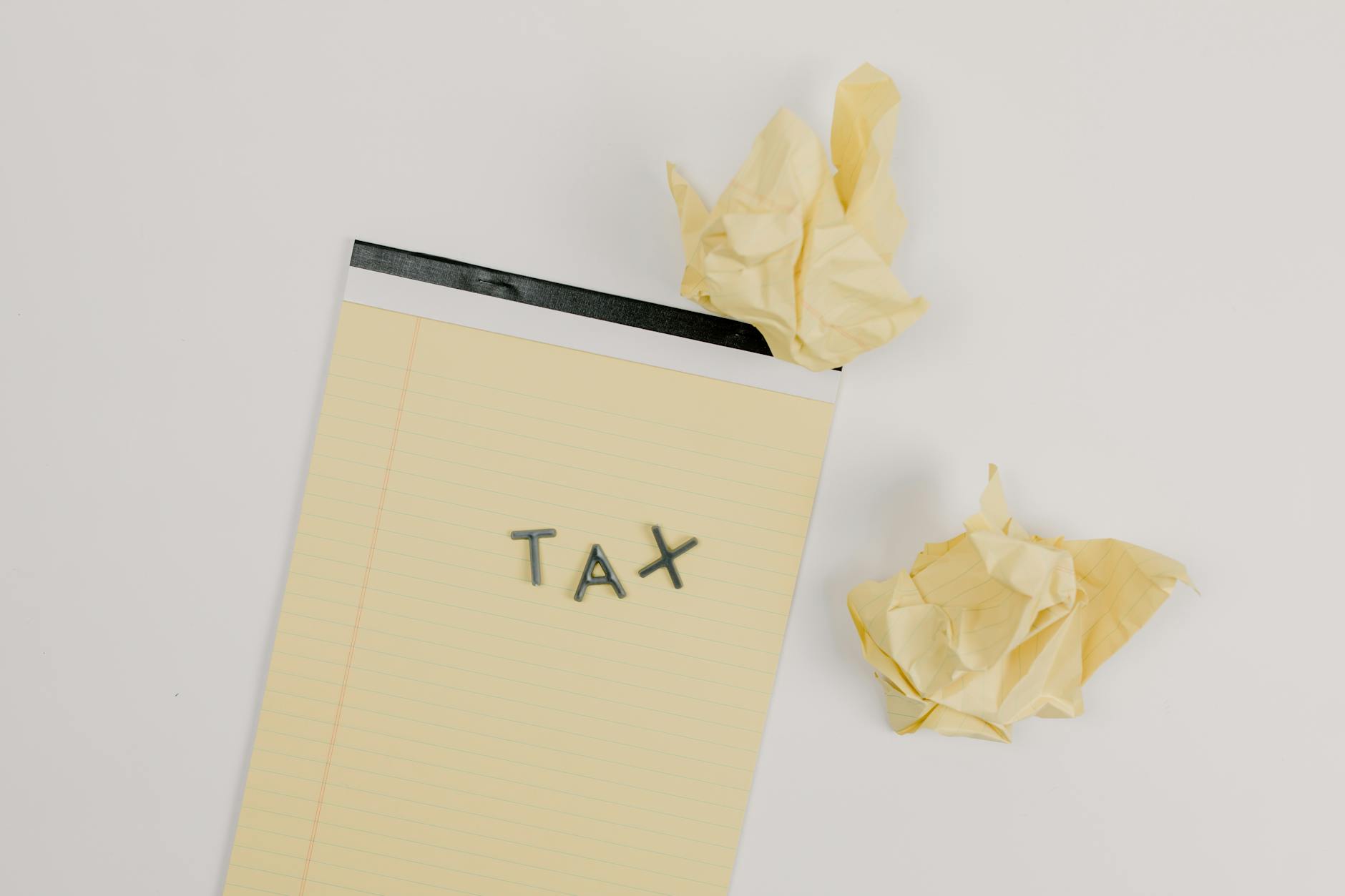Big brains, meet banana peels. It turns out high IQ doesn’t stop anyone from stepping smack into a money mess. In fact, the sharper you are, the easier it is to trip over your own confidence—especially when dollar signs are flashing.
Maybe you know someone who can recite the Nobel Prize winners but bought stock because a neighbor’s cousin said it was a “sure thing.” Or maybe you’ve watched bright leaders walk a company straight into chaos by trusting gut feelings over good sense.
There’s something uniquely funny—and a little alarming—about how smarts can turn into blind spots. Overthinking, overconfidence, and that old “I’ve got this” swagger have cost even the best and brightest a fortune. Here’s why being clever isn’t the same as being wise about business moves, and what we can do to avoid classic smart-people slipups.
When Brains Outweigh Sense: Meet the Biases That Trip Up the Brilliant
Let’s be honest—sometimes brainpower just means bigger bias blind spots. Smart folks aren’t wired to spot their own mind tricks; they’re often too busy building grand plans on flimsy foundations. Here are the sneaky habits that can send even the brightest down a business rabbit hole.
Anchoring: The Irresistible Pull of the Past
 Photo by Ann H
Photo by Ann H
Anchoring happens when people stick to their first reference point—often their own win or loss from years ago—and weigh every new chance against it. Consider someone who struck it rich by buying tech stocks in college. Now, whenever a hot new gadget company IPO pops up, they dive in, telling themselves, “Worked before, will work now.” Or think of the employee who once landed a major client by offering a shocking discount; forever after, dropping the price just feels like the “magic move,” even when costs are soaring.
This bias can root decision-making in yesterday’s news, not what’s smart for today. Research on sequential biases shows that past experiences—even small ones—carry weight in current choices, sometimes skewing our judgment.
Confirmation Station: All Aboard the Yes-Train
Smart people love a pattern they can run circles around. The trouble is, once they spot one, they might only look for clues that say, “Yes, you’re right!” It’s like running a team meeting and only listening to the folks nodding along, while the person with a valid warning gets ignored.
Plenty of business disasters started this way. Just look at the companies that rode bad ideas into the ground while telling themselves, “The data supports us”—except they only looked at data that said what they wanted to hear. Confirmation bias takes over, and “cautious optimism” turns into putting on blinders. One real-world example comes from managers clinging to failing products, using only the best reviews as proof, even when the majority verdict screams otherwise. Ignoring critics isn’t confidence—it’s a fast track to trainwreck territory.
Loss Aversion & Recency Panic: Scared of Shadows and Ghosts
Loss aversion is the gut instinct to run from pain more than we chase a win. Add recent bruises, and every new risk feels double-scary. Smart investors might cringe after losing money on crypto last quarter, suddenly seeing that flop behind every trading screen, no matter how different the next opportunity is.
Here’s a playful picture: Imagine someone burning toast and refusing to cook ever again, because “bread’s just too risky now.” It sounds silly, but in business, this thinking is common. Recency bias—overweighting the latest drama—makes yesterday’s pothole look like a canyon next time you cross the street.
Investors fall for this all too often, putting too much faith in the freshest memory. The recency bias effect turns every dip in the market into a prophecy, even when the odds have changed. The result: missed chances, nerves running wild, and sometimes, a fridge packed with nothing but jam—because, hey, toast is canceled.
Each of these mental traps hits the clever crowd hardest. Being smart doesn’t grant immunity from getting stuck on the wrong idea, chasing “truths” that flatter, or jumping at every ghost that looks like a mistake. The trick is remembering that even sharp minds trip over the same old thought tricks as everyone else.
Overconfidence on Parade: Why Big Egos Make Terrible Risk Managers
Brains are great. But when paired with turbo-charged confidence, they can create more mess than magic. When ego runs the show, good judgment packs up and leaves the room. Let’s break down why high self-belief can become a trapdoor, sending even the sharpest folks tumbling into risky business blunders.
The Trouble with Being Too Sure: Break Down How Overestimating Knowledge Leads to Bet-the-Farm Mistakes
Thinking you know it all is like driving with foggy glasses—eventually, you’re bound to swerve into disaster. Overestimating your knowledge leads to wild bets, skipped research, and a stubborn refusal to hit the brakes. This is overconfidence at full volume, pushing skilled people into colossal mistakes.
Get a little too certain, and it’s easy to start believing your gut is smarter than the market, your spreadsheet, and even basic math. Research shows this bias makes people underestimate risks, ignore warning signs, and double down when things go wrong. When you feel bulletproof, it’s hard to see the holes in your logic. There’s a whole field of study on this; for a quick deep dive into how overconfidence bias messes with decision making, check out this Investopedia summary.
Before you claim you’re exception to the rule, here’s a cheeky checklist to spot if you’re too confident:
-
You rarely check your thinking with people who disagree.
-
Mistakes feel like flukes—never your fault.
-
You catch yourself finishing other people’s sentences in meetings.
-
You skip drafts and reviews—your first try is always “right.”
-
Admitting “I don’t know” is harder than finding a lost sock.
-
Your decisions ignore advice from less-experienced colleagues.
-
You take high-stakes risks because “others just don’t get it.”
-
Your motto: “I’ve got this, no need for help.”
If your workplace bingo card starts to fill up, you might be parading around in the Overconfidence Olympics. Take a step back and remember, no one is smarter than every problem.
Brilliance Blinds: When Expertise Backfires
Deep knowledge should make you wise, right? Sometimes, it has the opposite effect. The more expertise, the less willing people become to question their own approach. It’s a case of knowing too much—and stopping yourself from asking, “What if I’m wrong?”
Here’s where the smart crowd can get into trouble: experience and credentials create “mental shortcuts.” You assume you’ve seen it all. This sets up blind spots so large you could drive a bus through them. Studies on leadership show that unchecked expert confidence leads to narrow thinking and blocks out fresh ideas. When was the last time you saw a seasoned exec admit a rookie’s hunch might be right?
History has some legendary lessons. Think of Long-Term Capital Management, the hedge fund powered by Nobel Prize winners who were so sure of their complex maths that they lost billions on bets they thought were ironclad. They trusted their expertise more than market warnings, an episode that’s still a must-read for every investor interested in the dangers of overconfidence. Curious about other ways leaders’ decision-making can go sideways? Here’s a solid summary of ways overconfident leadership clouds judgment.
 Photo by Tima Miroshnichenko
Photo by Tima Miroshnichenko
Even outside of finance, expertise can turn dangerous when leaders become so invested in their own methods that they ignore new data or feedback. If you want to see how attempts to prove competence can actually backfire on trust, this Forbes analysis on leadership pitfalls is worth a look.
Lesson? Even the smartest people need a gut check and a dose of humility. Otherwise, brilliance can blind you worse than any mistake you’re afraid to make.
Emotions Rule the Roost: How Fear, Greed, and Pride Crash the Party
Even the sharpest minds can get hijacked by old-fashioned feelings. Boardroom brains or bedroom traders, everyone’s got a soft spot for panic, money mania, or the thrill of being “right.” When fear, greed, and pride walk in, sense sometimes runs for cover. Let’s shed some light on these troublemakers.
Fear and Greed: The Classic Twin Terrors
 Photo by Mike Hayward
Photo by Mike Hayward
Fear and greed are like the peanut butter and jelly of disaster—delicious together for chaos. You might spot a high-flying CEO hedging every move after a single bad quarter, paralyzed by “what ifs.” Or picture a star investor piling into dogecoin at midnight because the FOMO (fear of missing out) bug bit hard. Smart folks don’t lack data; they lack brakes when big feelings take over.
Quick, fun stats and tales:
-
In 2020, research showed over 60% of retail investors admit they “panic sell” when markets drop, locking in losses they later regret.
-
During the 2008 crash, elite fund managers who once boasted nerves of steel raced to unload stocks, only to rush back into the market days later when greed kicked in.
-
Even pros don’t escape: some of the most famous market meltdowns came from “brilliant” traders who couldn’t resist a risky bet with other people’s money.
These feelings move quick. You’re the genius in the room until your heart pounds, your palms sweat, and suddenly you’re calling plays based on fear or the hope of a jackpot. The market never punishes smart—only smug or spooked.
Pride (or Saving Face) Sends Profits Packing
Pride is fear and greed’s cousin: it whispers, “You can’t back down now.” In business, pride shows up when smart people double down on a dud idea because switching course feels like admitting defeat. They would rather ride a three-legged horse than admit it wasn’t a thoroughbred.
One classic “oops” example: Blockbuster clinging to late fees and physical stores while Netflix mailed them the future, nicely gift-wrapped. Blockbuster’s leaders knew change was coming, but pride—the need to look wise and steady—kept them from jumping off that wrong horse. Spoiler alert: that horse ran straight into a wall.
Pride not only keeps people on the wrong road, but it can kill debate, lock out advice, and push teams to protect bad choices. According to Forbes, pride can fully destroy a company by isolating leadership, making it impossible to ask for help or admit mistakes. Leaders get wrapped up in ego and drive a business into the ditch with full confidence and a big smile.
If you ever find yourself defending a failure just because you “believed in it,” remember: “saving face” can wipe out profits faster than any recession. Smart means knowing when to get off the horse before it crashes the party. For more on how pride twists smart decisions, take a peek at this piece from Medium on how pride sabotages leadership.
Big brains are great, but feelings in the driver’s seat? That’s when things get bumpy.
How to Not Be ‘Dumb Money’: Sharpen Your Decision Mojo
Sharpening your decision-making skills isn’t about turning yourself into a data robot or living your life by pie charts. It’s about being able to hit pause, get real with yourself, and use some sneaky-smart tools to spot when your “big brain” is about to trip over a banana peel. Here, the real ‘mojo’ comes from outsmarting your own mind one wonky habit at a time.
Bias Busters: Tools for Smarter Choices
 Photo by Tima Miroshnichenko
Photo by Tima Miroshnichenko
Let’s be honest—nobody wants to admit their brain just did a cannonball into the pool of bad decisions. Here are quirky, doable ways to make your thinking less “oops” and more “aha”:
-
Write down your reasons. Before saying “yes”, jot down your “why.” Seeing your logic in black and white makes fuzzy wishes stand out. It also makes you think twice before doubling down on a just-because hunch.
-
Play devil’s advocate…with yourself. Argue the other side out loud or on paper. It’s like doing a pre-launch roast of your own idea. Bonus: you’ll spot holes faster than a hedgehog finds an apple.
-
Automate when possible. For regular choices (investing each month, paying bills), set up automatic systems. Less brain drain. More space for the big stuff. Plus, automation keeps emotions out of day-to-day choices.
-
Use a “decision matrix.” Make a quick chart to weigh your options. Write what matters across the top (risk, reward, sleepless nights). Rate each option. This way, your gut gets backup from your brain. Check out these decision-making tools that make business choices less of a guessing game.
-
Set a “cooling-off” period. When a choice feels super urgent, hit pause. Grab a coffee, walk the dog, or do five silly dances in your kitchen. If it’s still a great idea after you cool down, go ahead.
-
Phone a friend (or skeptic). Ask someone who’s not afraid to question you. Sometimes your best logic fails, but a friend can spot a potato disguised as a diamond.
Want to geek out even more? Here’s a list of 36 proven decision-making models if you’re ready to turn choices into a science fair.
Self-Awareness Is Your Secret Weapon
Think of self-awareness as your magical lie detector—except the person on the hot seat is you. The trick is not taking yourself so seriously that you can’t see when your own motives are shaping up to sabotage you.
Checking your motives and mood doesn’t have to be the business version of journaling on a mountain top. Here’s how to keep yourself in check without getting preachy:
-
Do a “gut scan.” Ask: Am I excited, scared, or grumpy? Notice what emotions stand out. If you’re hyped up or extra anxious, flag it. Your next move is probably colored by your mood.
-
Question your motives like a nosy neighbor. Why do you really want this? Is it for the win, the brag, or the long haul? This smart Medium post explains why your “why” often outweighs your plan.
-
Hunt for mixed signals. Are you ignoring red flags because you want something to be true? Stop and reread the room—especially if you feel invincible or pressed by FOMO.
-
Flip your story. Imagine you are giving advice to a friend in your exact shoes. Would you cheer them on, or tell them to run for cover?
-
Emotions snooze button. If you feel a rush of excitement or panic, wait a beat—then decide. Taking a moment to chill can help you separate feelings from facts. Want more savvy tips for cooling down before you choose? Here’s how to check your emotions before deciding.
Building self-awareness isn’t about shame. It’s the friendly tap on your shoulder, reminding you not to trust your first impulse just because it feels genius in the moment. A little honesty up front saves a lot of cleanup later.
Stories from the Smart Set: Famous Fumbles and Turnarounds
The business world is packed with tales where brainy leaders crash and burn, only to rise and win—or at least give us something to laugh about. It’s proof that a fancy degree or a shelf of trophies can’t stop anyone from face-planting in full view of the world. The real gold comes from learning to laugh, switch gears, and sometimes pull off a move so bold it flips the script.
Myopic Geniuses: When IQ Outmuscles Instinct
Some of the sharpest minds have made mistakes that seem straight from a comedy sketch. One classic case: Edwin Land, the mind behind Polaroid. In the 1970s, he bet all the company’s chips on instant film. Even after digital cameras appeared on the scene, Land was sure people wanted printed memories, fast. This confidence didn’t just slow innovation—it tanked Polaroid, which filed for bankruptcy in 2001. Land’s knowledge was off the charts, but he stuck with old success like a dog with an old bone.
Another head-scratcher is Borders Books. The execs at Borders went heavy on CDs and DVDs while competitors like Amazon were betting on the web. Even as customers started shopping online, Borders’ leaders insisted brick-and-mortar would rule the future. Instead, Borders closed for good in 2011—caught flat-footed by tech they refused to trust.
These stories aren’t rare. High performers often run with their first win, tighten their grip, and don’t look back until the finish line moves.
U-Turns and High-Wire Acts: When Smarts Spark a Comeback
But the news isn’t all doom and gloom. Those same “dumb money” leaders sometimes turn stunning mistakes into sweet comebacks.
Apple offers a textbook plot twist. In the mid-1990s, Apple booted Steve Jobs, betting it could thrive on old hits. Sales tanked. The board swallowed its pride and brought Jobs back. Not only did Jobs admit Apple’s past blunders, but he also pivoted hard, betting on sleek design and new gadgets. The result? iPod, iPhone, and a brand reborn. Apple’s return is featured in this roundup of famous business comebacks.
Marvel Comics tells a similar story. In the 1990s, Marvel was sinking. The company hoarded old characters and nearly went bankrupt. Its big reboot? Betting it all on movies, which turned superhero boredom into blockbuster gold. That leap from comic pages to the big screen turned Marvel into a film juggernaut. Marvel’s turnaround is included in this list of iconic businesses that made a comeback.
Lessons from Brilliant Blunders
Brainpower is great for crushing crossword puzzles, but it doesn’t keep you from tunnel vision, wishful thinking, or chest-thumping pride after a single win. The brightest leaders fail for simple reasons:
-
They double down on old victories and assume nothing changes.
-
They build complex plans and miss what the market really wants.
-
Their pride blocks help or feedback until it’s too late.


![The Dumb Money Effect: Why Smart People Make Baffling Business Blunders [2025 Updated]](http://www.newonlinelife.com/cdn/shop/articles/peachfuzz5000_young_man_sitting_on_the_floor_in_a_clown_suit__3624db47-4514-44b7-b7f3-295082e88eee_0.png?v=1757806780&width=1100)
 Photo by
Photo by